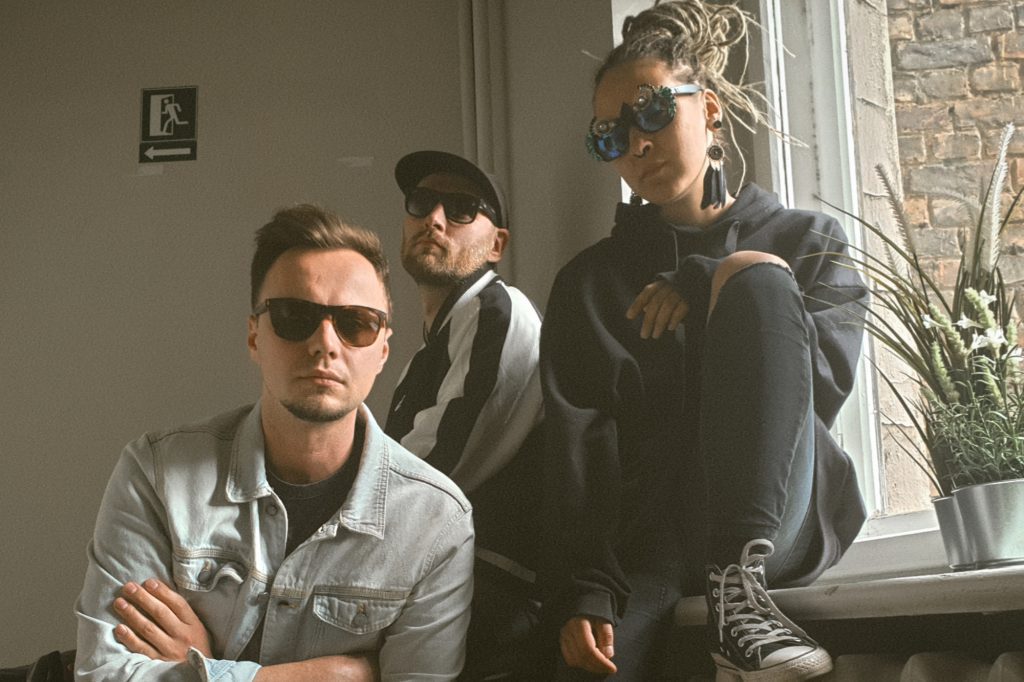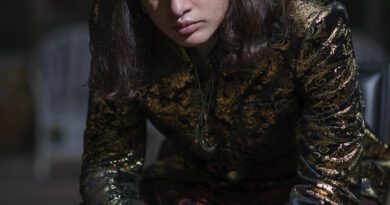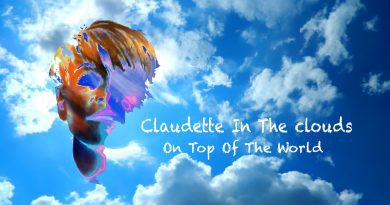A Chat with Bandmaster (30.07.2020)
After a 3-year hiatus, Bandmaster is back with their new single ‘I Might Get High Tonight’. The Latvian trio, including DJ/producer Rudd, producer Andis Ansons and rapper VINA aka Zelma Jegere, use danceable beats, vocal hooks and overdrive synths to grab your attention. We sat down with the band to talk about their new single, creative process, music and much more!
OSR: Is there anyone who inspired you to become a musician?
Andis: Although I played musical instruments from a young age, I guess the local house scene inspired me to try electronic music when I was a teenager. Haven’t ever stopped since then.
Zelma: There is no particular musician or a band that inspired me to become a musician. As far as I can remember, it was just the wonderful feeling of running around in a forest and singing songs as a kid or listening to nice tunes on the radio during long car rides.
Rudd: As far as I can remember, I always wanted to be a musician. I would listen to tapes and records and then play the piano for hours as a kid. The stuff I listened to a lot back then was Abba, The Beatles, Queen and George Gershwin. Weird combo.
OSR: What drew you to your preferred genre?
Andis: Yeah, local house music scene. I remember listening to deep house mixes while even going to sleep, I just couldn’t get enough of electronic beats at that time.
Rudd: I remember this vividly. One summer, when I was a teenager, I met my classmate on the street as I was coming home from a rock concert. My friend sneered at me and said that WestBam and rave music is the new thing. Later we started deejaying together.
OSR: Does your music fit into your local scene? If so, how do you utilise that and if not, how do you overcome that?
Andis: The local electronic music scene has been growing, but it is more prominent in beats and hip-hop sector. That has allowed us to stand out a little and thanks to that, we get invited to play more festivals and play warm-up spots for bigger international acts.
Rudd: Also, there is some movement in the house and techno scene, but it is very underground at this point. We are somewhere in the middle. This is also a good thing as some of our songs get played on mainstream radio.
OSR: ‘I Might Get High Tonight’ is your first song after a 3-year hiatus, why the long break?
Andis: After being very active for the first 3 years, we kinda got tired of each other. I think the break was what we needed to start over fresh and with more energy, power and knowledge behind our music.
Rudd: The break also allowed us to do more stuff individually and in other projects. It also gave a chance to evaluate ourselves and appreciate what we can do as a collective.
OSR: Is there a message or hidden meaning in ‘I Might Get High Tonight’?
Zelma: This song is about an internal dualism and never-ending struggle of good and bad choices in life and which version of yourself you are going to be today. The title ‘I Might Get High Tonight’ might give you a hint which choices it describes more.
OSR: What was the creative process for the single?
Andis: After the long break, we decided to get together at Zelma’s countryside house and work on some new music. This was one of the first ideas that we made. I remember that we had a complete demo ready after just after a couple of days and we could listen to it while driving home from the creative camp.
Zelma: It was really nice to get back together and work on new songs again. It felt better than ever and ideas were popping up like mushrooms after the rain.
Rudd: The idea for the track came out of what would be your typical electro 1/16 arpeggio bassline just messing around on a Korg MS-20 mini. At first, we intended to sample a phrase “Rhythm Is Destroyed” from Alvin Lucier’s sound piece ‘I Am Sitting in a Room’. Paradoxically, “Rhythm Is Destroyed” was the working title for this track despite the four-to-the-floor rhythm pattern.

OSR: If your music was a feather, what colour and softness would it be?
Andis: I would say our feather would be black, but with some other colours sprinkled in. Also, a feather has softer parts, but also other stiffer parts. We mainly focus on the stiffer parts of our musical feather, but our music can be gentle and soft. Having both of these works really well in longer musical adventures such as albums or live shows.
Zelma: It would be a big black soft feather from a bird that has the nicest tune in the whole big bird community.
OSR: What is the biggest problem you have overcome so far?
Andis: After taking the break, I had a feeling that this could be the end of Bandmaster. So coming back and releasing new music must be the biggest obstacle we have overcome.
OSR: What are your plans for the next year?
Rudd: We want to release our first full-length album. Let’s all hope that the world is a much better and safer place next year and all musicians can step on those stages in front of people who love music.
OSR: If you have people remember one thing about your music, what would it be?
Andis: I would encourage people to listen to our song ‘Us’, there is always a special feeling when we play it live.
Rudd: In a weird way I believe our music is very human despite it being electronic. It embodies the full spectrum of emotions, it can be uplifting, it can be melancholic, fierce and also laid-back. Electronics are a big part of our everyday life now. So yeah, I want people to remember our music as “human”.
Thanks to Bandmaster for chatting with us! You can find more about them on their website, Facebook, Twitter, Instagram and Spotify.


